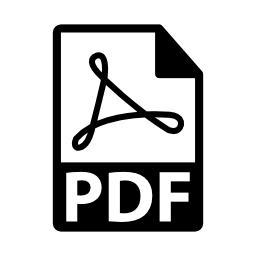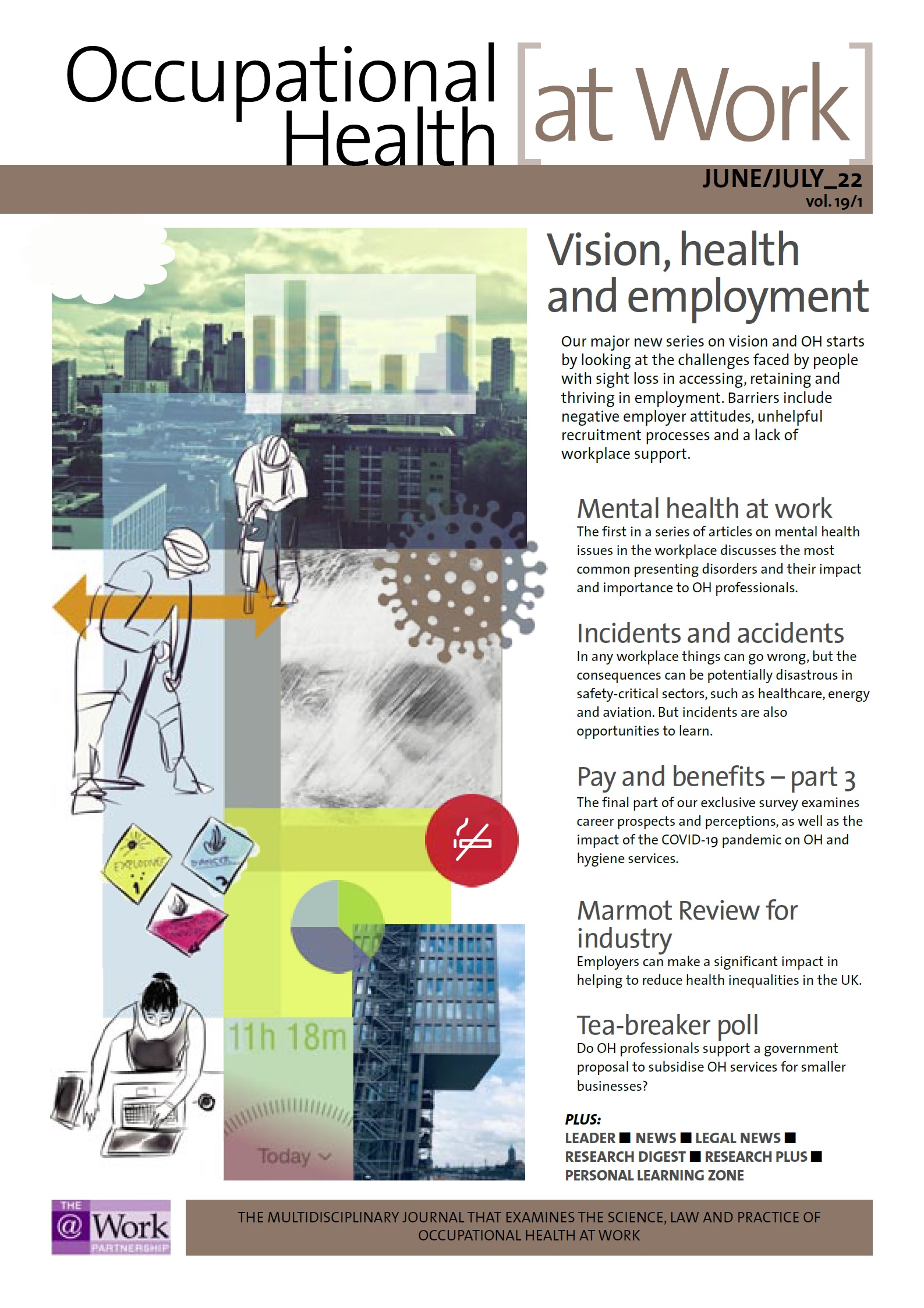June/July 2022 (vol. 19/1)
ContentsFeaturesNewsLegal
NewsResearch DigestResearch PlusCPD
 PERSONAL LEARNING ZONE
PERSONAL LEARNING ZONE
Summary:
FEATURED ARTICLE
This issue of Occupational Health [at Work] features a Personal Learning Zone (PLZ) article recommended for continuing professional development (CPD). The assignment questions, ‘Personal learning statement’ and ‘Certificate of engagement’ are available to subscribers at here. These will also be stored in your password-protected PLZ. The PLZ will help you document your own CPD. Occupational health physicians and nurses, occupational hygienists and other professionals can use the resource in support of their specialism’s revalidation or CPD requirements
Pages 25–28. Incidents and accidents When things go wrong in safety-critical workplaces, the consequences can be devastating. But incidents, no matter how serious, can also be opportunities to learn; a chance to develop better ways to work in the future. Incident analysis is a vital part of the learning, but it is also important to make time for reflection and to avoid the trap of ‘fundamental attribution error’.
ADDITIONAL CPD
The following articles, news and research items are suggested reading for CPD and professional revalidation. Subscribers can complete their online Personal Learning Zone CPD record at here
Page 6-7. The Marmot Review for industry sets out ways in which businesses can improve public health through their jobs, products, services, investments, procurement and supply
Page 8. Clinical guidance on occupational asthma includes advice on screening patients with asthma for a possible occupational cause.
Pages 12–14. The EAT has held that an employee was not unfairly dismissed, and that there had been no unfavourable treatment in relation to s.15 of the Equality Act 2010, even though she had been discriminated against because the employer had refused to extend the time limit normally allowed to lodge an appeal against a dismissal.
Pages 15–18. Negative attitudes can create barriers to employment and job retention for people with sight loss. However, barriers also exist in the systems and policies operated by employers, and by a lack of available support.
Pages 19–24. Depression and anxiety are extremely common conditions that can have a profound impact on individuals, and can be costly to employers. OH professionals need to understand these common mental health disorders and, in doing so, can help individuals stay healthy and productively in work.
Pages 40–42. Our compendium of recent research includes a comparison of face-to-face assessments and online questionnaires for use in routine OH screening.
Author: The At Work Partnership Ltd
Occupational Health at Work June/July 2022 (vol. 19/1) pp43



